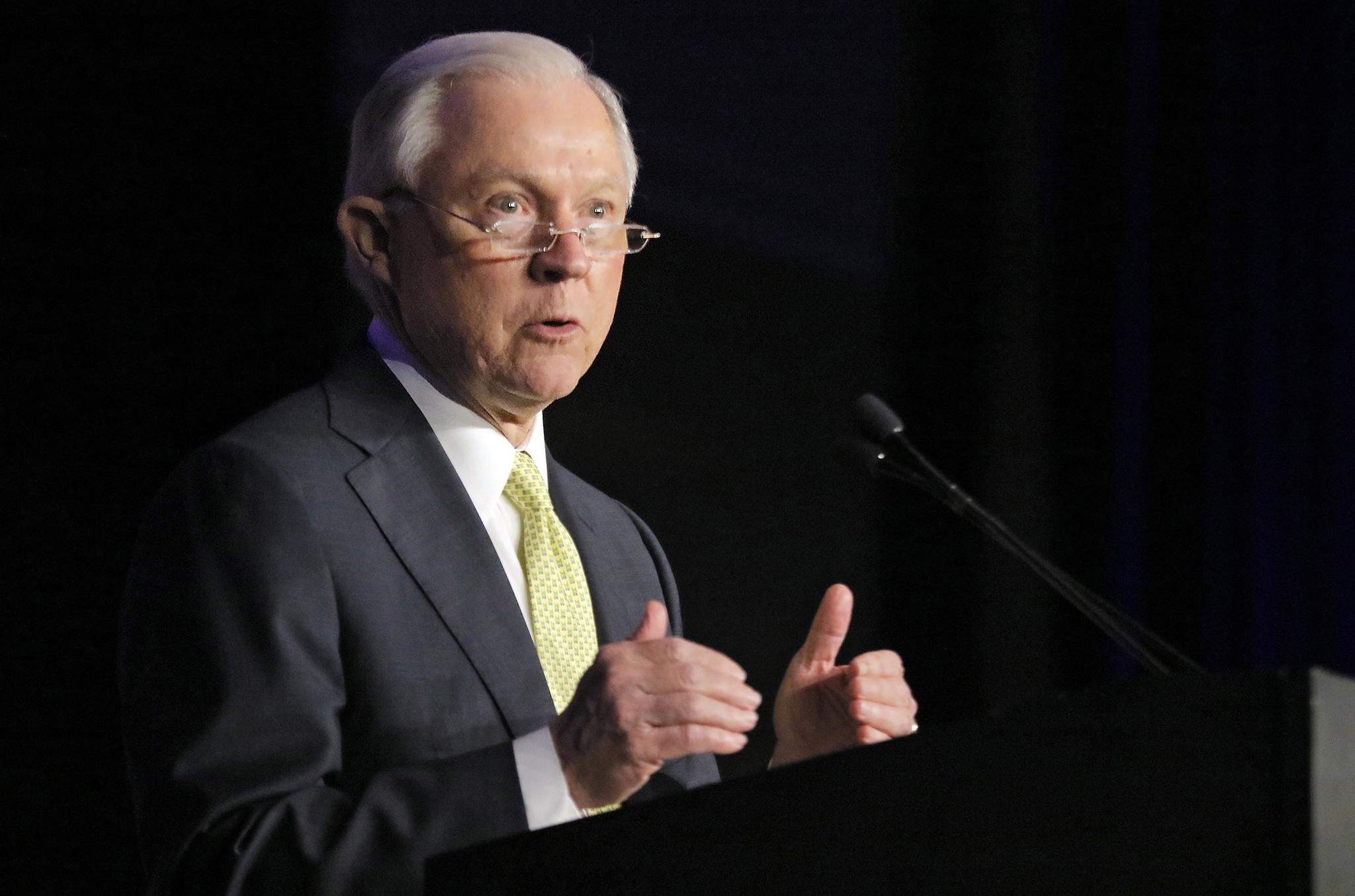Jeff Sessions testimony: Trump's Attorney General to testify in public Senate hearing
Mr Sessions 'believes it is important for the American people to hear the truth directly from him', the Justice Department said

Your support helps us to tell the story
From reproductive rights to climate change to Big Tech, The Independent is on the ground when the story is developing. Whether it's investigating the financials of Elon Musk's pro-Trump PAC or producing our latest documentary, 'The A Word', which shines a light on the American women fighting for reproductive rights, we know how important it is to parse out the facts from the messaging.
At such a critical moment in US history, we need reporters on the ground. Your donation allows us to keep sending journalists to speak to both sides of the story.
The Independent is trusted by Americans across the entire political spectrum. And unlike many other quality news outlets, we choose not to lock Americans out of our reporting and analysis with paywalls. We believe quality journalism should be available to everyone, paid for by those who can afford it.
Your support makes all the difference.US Attorney General Jeff Sessions has requested that his testimony before Congress be open to the public because he “believes it is important for the American people to hear the truth directly from him,” the Justice Department has said.
Mr Sessions announced over the weekend that he planned on appearing before the Senate Intelligence Committee to respond to the testimony of former FBI Director James Comey.
Mr Comey, fired by Donald Trump in May, alleged last week that he had asked the attorney general to shield him from having to have private conversations with the President.
The day before he made this request to Mr Sessions, Mr Comey said he believed that Mr Trump had directed him to end an investigation into former National Security Adviser Michael Flynn's alleged ties to Russia. According to the ex-FBI chief, Mr Sessions did not verbally respond when he implored Mr Sessions to prevent any future direct communication between him and Mr Trump, as the FBI is meant to be insulated from the political pressure of the White House.
Several members of Congress had urged the Senate Intelligence Committee to hold the Sessions testimony openly. That includes Democratic Senator Ron Wyden, who sent a letter to the chairman and vice chairman of the committee saying that the Senate owes the American public transparency because the matters being discussed are critically important for the US.
At the time of his dismissal, Mr Comey was also leading an investigation into whether Trump campaign advisers had colluded with the Russian government to influence the 2016 US election.
Mr Sessions had recused himself from that investigation in March following reports that he met twice with Russian Ambassador Sergey Kislyak during the presidential campaign and did not disclose the encounters to Congress during his confirmation hearing in January.
“Our judgment was that he was very close and inevitably going to recuse himself,” Mr Comey said on Thursday. “We were also aware of facts I can’t discuss in an open setting that would make his continued involvement in a Russia investigation problematic,” he added.
Mr Comey also reportedly told senators behind closed doors that Mr Sessions may have met with Russia’s ambassador a third time.
The Justice Department on Thursday defended Mr Sessions, saying that shortly after being sworn in as attorney general, he began consulting with department officials to determine if he should recuse himself from any matters relate to the presidential campaigns.
“Given Attorney General Sessions’ participation in President Trump’s campaign, it was for that reason, and that reason alone, the Attorney General made the decision on March 2, 2017 to recuse himself from any existing or future investigations of any matters related in any way to the campaigns for President of the United States,” a Justice Department spokesman said.
Mr Sessions' testimony has the potential to derail work again this week on the Republicans' legislative agenda, distracting Congress from big-ticket policy items such as healthcare and tax reform.
The attorney general had originally been scheduled on Tuesday to testify before the Senate and House Appropriations subcommittees about the Justice Department's budget. Now that he's appearing before the Senate Intelligence Committee tomorrow, Deputy Attorney General Rosenstein will testify before those panels instead.
Join our commenting forum
Join thought-provoking conversations, follow other Independent readers and see their replies
1Comments